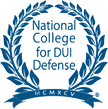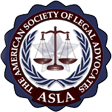Emerald City Law Group Explains Washington DUI Laws
Many of Washington’s DUI laws are part of their Rules of the Road – Title 46, Chapter 61 of the Revised Code of Washington (RCW). Within that chapter is a section on reckless driving, driving under the influence (DUI), and vehicular homicide and assault, which contains numerous individual statutes explaining what constitutes a DUI and how you may be punished if convicted. However, other relevant DUI laws are found elsewhere in the RCW. For instance, statutes regarding implied consent and commercial driver’s license (CDL) DUIs can be in Chapter 20: Driver’s Licenses.
If you are currently facing Washington DUI charges in Seattle, contact our experienced King County DUI defense attorneys of Emerald City Law Group at 206-973-0407.
DUI Laws, Fines & Penalties in Washington
Some Washington DUI laws that may be relevant to your case include:
46.61.502 – Driving Under the Influence
Under this law, you can be found guilty of driving under the influence of an intoxicating liquor, marijuana, or any drug if you drove within the state and had, within two hours of driving, a blood alcohol concentration (BAC) over .08 percent, a tetrahydrocannabinol (THC) concentration of 5.0 percent or more, or you drove while under the influence of or affected by alcohol, marijuana, or drug, or a combination of them. A DUI is typically charged as a gross misdemeanor. However, various circumstances can increase the penalty or the specific charge.
46.61.503 – Driver Under 21
This law creates a different legal limit for individuals 20 years old and younger. If you are under the age of 21, you can be found guilty of a DUI if you have a BAC of .02 percent or higher within two hours of operating or being in physical control of a car.
You can also be convicted of a DUI if you have any THC in your blood within two hours of driving or being in physical control of a vehicle. If charged, this is typically a misdemeanor.
46.61.504 – Physical Control of a Vehicle
You do not have to be driving your car to get a DUI in Washington. This law states you can be guilty of a DUI if you were in actual physical control of a vehicle within the state while being under the influence of an intoxicating liquor or any drug, or had a .08 percent BAC or 5.0 THC concentration within two hours of being in actual physical control of the vehicle. This is also a gross misdemeanor so long as no other aggravating factors raise it to a felony.
46.61.5055 – DUI Penalty Schedule
This statute lays out the penalties for DUIs that involve BACs above and below .15 percent when you refused to take a BAC test, and for first, second, and subsequent DUIs. For example, if you are convicted of a first-time DUI with a BAC less than .15 percent, you will be imprisoned no less than 24 hours but no more than 364 days and fined between $350 and $5,000.
If you had a BAC of .15 percent or higher or you refused to take a BAC test, then you must spend a minimum of 48 hours in jail, with a maximum sentence of 364 days, and will be fined between $500 and $5,000. Additionally, the period of time the court will look back to determine if you have a previous DUI offense is seven years.
46.61.506 – Evidence of BAC Tests
This law determines when the results a breath or blood test to determine your BAC may be admitted to court. For a result to be valid and admissible, the police must have followed certain procedures, including conducting a mouth check and observing you for a 15-minute period.
The test must have been conducted based on approved methods, with instruments and equipment that were also approved, and by a qualified individual. As your Seattle DUI attorneys, we will thoroughly review every aspect of the BAC tests you submitted to determine whether we can fight to have the results ruled inadmissible.
46.20.308 – Implied Consent
Washington law states that if you operate a vehicle within the state, you are deemed to have given consent to tests of your breath to determine your BAC when you are arrested under the suspicion of driving or being in actual physical control of a vehicle while under the influence of alcohol or any drug.
This law also outlines the implied consent warnings police officers must provide you before asking you to submit to a test. It also states an officer can seek to obtain a warrant for a blood sample, which can then be used against you in court.
46.61.517 – Refusal of Tests
If you refuse to take a blood test, your refusal can only be admitted as evidence if the police had a warrant or an exception to a search warrant that required your submission. If the police did not have a warrant or an exception to require a blood sample, your refusal cannot be used against you.
46.20.3101 – Implied Consent Sanctions
If you refused a BAC test for the first time ever or within seven years, you face an administrative license suspension for one year. A second refusal within seven years may result in a two-year administrative license suspension.
If you submitted to the test and it put you over the legal limit for the first time, the civil suspension is for 90 days. If a test put you over the legal limit for a second or subsequent time within seven years, then the civil suspension is two years.
Talk to an Experienced DUI Attorney
Call Emerald City Law Group at 206-973-0407. We can discuss your specific case in a free initial consultation.






